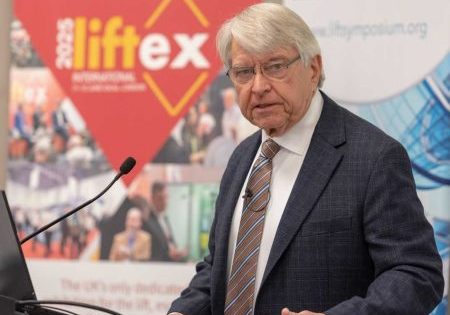Court declines to set-off second adjudicator’s award.
Frustrated respondents should be aware that a request to set-off a second adjudication decision between the same parties in defence of a claim to enforce an earlier decision will be granted only in limited circumstances. As a general principle, claimants can be confident the courts will enforce an Adjudicator’s decision in their favour unless it is established that the Adjudicator has exceeded their jurisdiction or has materially breached the laws of natural justice.
In CNO Plant Hire Ltd. v Caldwell Construction Ltd. [2024], the defendant sought to rely on a third possibility for resisting enforcement by inviting the Court to exercise its discretionary power to set-off against the Adjudicator’s decision a subsequent adjudication decision in the defendant’s favour. Whether it was appropriate for the Court to exercise this discretionary power was the central issue before the Technology and Construction Court (TCC) in Leeds.
Key Takeaways
- The Court again shows its willingness to enforce adjudication decisions swiftly, summarily and without set-off unless there are exceptional circumstances.
- Any party in receipt of an adjudication decision that requires it to pay money should be prepared to honour that decision regardless of any competing adjudication awards that may exist — the principal remains “pay now, argue later.”
Background
Caldwell Construction Ltd. (“Caldwell”) engaged CNO Plant Hire Ltd. (“CNO”) for the provision of earthworks at Poverty Lane, Maghull. The appointment was made by a sub-contract dated 20 September 2022.
On 30 December 2023, CNO issued an interim payment application in the sum of £253,425 (the “December Payment Application”). Caldwell failed to issue a payment notice or payless notice and made no payment to CNO. CNO referred the dispute to adjudication on a “smash-and-grab” basis, that is to say, one based solely on the payer’s failure to serve a valid notice, rather than on the underlying merits or “true value” of the account.
The Competing Adjudication Decisions
By a decision in the “smash-and-grab” adjudication dated 5 March 2024, the Adjudicator ordered Caldwell to pay the notified sum in the December Payment Application plus VAT, interest and fees (the “First Adjudication Decision”).
Caldwell failed to comply with that First Decision. Instead, it commenced a “true value” adjudication regarding an earlier payment application made by CNO in September 2023. Notably, the December Payment Application on which CNO had relied in their “smash-and-grab” adjudication was for the same valuation of the same work as the September 2023 payment application. In effect, it was a final account for the same sum.
CNO challenged the second Adjudicator’s jurisdiction on the basis that the dispute referred was “the same or substantially the same” dispute as that determined in the First Adjudication Decision. The second Adjudicator did not agree. Determining that he had jurisdiction, the second Adjudicator ruled partly in Caldwell’s favour and ordered Caldwell to pay CNO the sum of £89,480 plus VAT (the “Second Adjudication Decision”).
Enforcement Proceedings
When the First Adjudication Decision was not paid, CNO applied to the TCC to enforce it by way of summary judgment. Caldwell, for whatever reason, did not take steps to enforce the Second Adjudication Decision by issue of proceedings of its own. Instead, Caldwell attempted to resist enforcement of the First Adjudication Decision simply by inviting the Court to exercise its discretion to set-off the Second Adjudication Decision against the First Adjudication Decision.
The Court’s Decision
Finding in favour of CNO, Her Honour Judge Kelly enforced the First Adjudication Decision and declined to allow any set-off. Following a review of recent legal authorities in this area, the Judge’s decision was reached for the following reasons:
- The setting-off of one adjudication decision against another is available only where both decisions are valid and enforceable.
- Since Caldwell had chosen not to apply to enforce the Second Adjudication Decision, the Court could not determine whether Caldwell had, in fact, been entitled to commence its “true value” adjudication.
- Had Caldwell applied to enforce the Second Application Decision, CNO would have raised its jurisdictional challenge, made further arguments and presented evidence. Absent that evidence, it was inappropriate for the Court to exercise its discretionary power to order a set-off.
- Even if the judge was wrong in that finding, this was not a case in which the Court should exercise its discretion to permit set-off. Although the two adjudications were based on two different payment applications, it was “wholly artificial” to assert that those payment applications related to different payment cycles.
- It would seriously undermine the policy of enforcing financial adjudication decisions swiftly if the Court were to allow set-off without requiring payment of the sum previously found due.
The lesson is a familiar one: if you are on the receiving end of an Adjudicator’s decision, be realistic about the prospects of seeking to resist enforcement of that decision and the limited exceptions available.
Analysis
Judge Kelly’s judgment is another good example of the general approach of the English courts, which is to uphold and enforce adjudication decisions “summarily” and “expeditiously.” Ordering a set-off is within the Court’s discretion, but only applies where there are two valid and enforceable decisions involving the same parties and actions have been taken to enforce them.
The lesson is a familiar one: if you are on the receiving end of an Adjudicator’s decision, be realistic about the prospects of seeking to resist enforcement of that decision and the limited exceptions available.
This article contains information of general interest about current legal issues but does not provide legal advice. It is prepared for the general information of our clients and other interested parties. This article should not be relied upon in any specific situation without appropriate legal advice. If you require legal advice on any of the issues raised in this article, please contact one of our specialist construction lawyers. © Hawkswell Kilvington Ltd. 2024
Get more of Elevator World. Sign up for our free e-newsletter.










